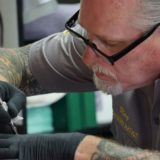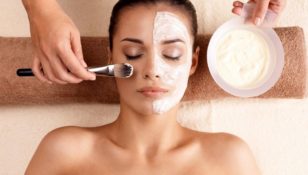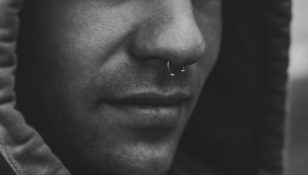Stress Breakouts: Understanding and Dealing with Stress-Induced Acne

Introduction
Stress is an inevitable part of our lives, and it can often take a toll on our skin. One common manifestation of stress on the skin is the development of stress-induced acne, also known as “stress breakouts.” These pesky pimples can not only be physically uncomfortable but can also have a significant impact on one’s self-esteem. In this article, we will delve deep into the world of stress breakouts, providing valuable insights for those interested in understanding and managing this common skin concern.
Understanding Stress Breakouts

Stress breakouts refer to acne flare-ups that are triggered or worsened by stress. When we experience stress, our body releases hormones such as cortisol, which can lead to the production of excess oil in the skin. This excess oil, combined with dead skin cells and bacteria, can clog the pores, resulting in the formation of pimples. Stress breakouts typically occur on the face, chest, and back, where the sebaceous glands are more active.
Historical Evolution of Stress Breakouts
The relationship between stress and acne has been a subject of interest for researchers for many years. In the 1950s, dermatologists observed a correlation between stress and acne severity in their patients, leading to the belief that psychological factors could influence the development of acne. However, it was not until the 1990s that scientific studies began to shed more light on this connection.
Researchers discovered that stress can aggravate existing acne and increase the likelihood of acne flare-ups in individuals already prone to the condition. The release of stress hormones can disrupt the balance of other hormones in the body, such as androgens, which play a role in sebum production. This hormonal imbalance can contribute to the development of stress breakouts.
Managing Stress Breakouts
Now that we understand the basics of stress breakouts, let’s explore some effective strategies for managing and preventing them:
1. Prioritize Stress Management: Incorporate stress-reducing activities into your daily routine. This can include exercise, meditation, deep breathing exercises, or engaging in hobbies that bring you joy.
2. Maintain a Healthy Skincare Routine: Establishing a consistent skincare routine is crucial in managing stress breakouts. Cleanse your skin twice a day with a gentle cleanser to remove excess oil and impurities. Use products containing benzoyl peroxide or salicylic acid, which can help unclog pores and reduce inflammation.
3. Avoid Touching Your Face: Touching your face can transfer bacteria and irritants, leading to further breakouts. Resist the urge to pick or pop your pimples, as this can cause inflammation and potentially lead to scarring.
4. Eat a Balanced Diet: Consuming a diet rich in fruits, vegetables, lean proteins, and whole grains can support overall skin health. Avoiding processed and sugary foods may also help prevent acne breakouts.
5. Get Sufficient Sleep: A good night’s sleep is essential for overall health and can positively impact your skin. Aim for 7-9 hours of uninterrupted sleep each night to reduce stress and promote skin rejuvenation.
6. Seek Professional Help: If stress breakouts persist despite your best efforts, consider consulting a dermatologist. They can assess your skin condition, provide personalized treatment options, and recommend appropriate skincare products.
Conclusion
Stress breakouts can be a frustrating and challenging skin concern. By understanding the underlying mechanisms and implementing effective stress management strategies, you can reduce the frequency and severity of these breakouts. Remember, taking care of your overall well-being and maintaining a healthy lifestyle are essential components of managing stress-induced acne. So, prioritizing self-care and seeking professional guidance when necessary will help you achieve clearer, healthier skin.
References:
– Smith, R. N., Mann, N. J., & Braue, A. (2007). The effect of a high-protein, low glycemic-load diet versus a conventional, high glycemic-load diet on biochemical parameters associated with acne vulgaris: a randomized, investigator-masked, controlled trial. Journal of the American Academy of Dermatology, 57(2), 247-256.
– Kiecolt-Glaser, J. K., McGuire, L., Robles, T. F., & Glaser, R. (2002). Psychoneuroimmunology and psychosomatic medicine: back to the future. Psychosomatic Medicine, 64(1), 15-28.
– Arck, P. C., & Slominski, A. (2009). The skinhypothalamuspituitaryadrenal axis. Archives of Dermatological Research, 301(7), 165-181.

















